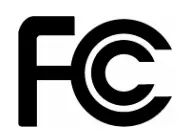
Essential Guide to FCC Certification
Almost every country in the world regulates the electromagnetic compatibility (EMC) of electronic products within its borders. In the United States, this is regulated by the Federal Communications Commission (FCC). According to the Code of Federal Regulations (CFR) 47, any electronic product entering the United States must undergo electromagnetic compatibility certification, known as FCC certification, which covers more than 50 states, the District of Columbia, and U.S. territories.

Origin of FCC
The FCC (Federal Communications Commission) is an independent agency of the U.S. federal government responsible for regulating communications by radio, television, wire, satellite, and cable across the United States. FCC certification is a mandatory certification in the U.S. and is required for entry into the U.S. market. FCC’s EMC regulation only requires EMI (Electromagnetic Interference) and has no requirement for EMS (Electromagnetic Susceptibility). The main EMC tests under FCC are radiation interference and conduction interference.
FCC Certification Categories
FCC classifies certification methods based on the type of electronic product:
- fcc sdoc (Supplier’s Declaration of Conformity): Applicable to products without wireless functions. (The original DOC and Verification were merged into sdoc in 2017)
- fcc id (Certification): Applicable to products with wireless functions.
Simple Comparison between FCC SDO and FCC ID
- FCC SDOC: Applicable to products without wireless functions, such as electronic scales, humidifiers, vacuum cleaners, electric fans, etc. Testing content includes Electromagnetic Compatibility (EMC). Certification cost is low, the testing cycle is short, and after the testing agency completes the regular testing process and issues the test report, the project ends.
- FCC ID: Applicable to products with wireless functions, such as mobile phones, wireless remote controls, Bluetooth speakers, tablets, etc. Testing content includes Electromagnetic Compatibility (EMC) + Radio Frequency (RF). Certification cost is high, the testing cycle is long, and after the test report is issued, it is submitted to a TCB agency to issue an ID certificate.
*Note: TCB stands for Telecommunication Certification Bodies, organizations authorized to issue certificates that comply with FCC regulations.*
Common FCC Product Categories
Computers, home appliances, access control systems, power tools, lighting, medical devices, industrial equipment.
- Radio Frequency Devices: fcc part 15, which covers most electronic devices. Products without wireless functions fall under FCC Part 15 Subpart B, including displays, general household appliances, lighting, information products such as computers, power tools, audio and video products, toys, security products, general access control systems, wireless phones, TV receivers, etc. Products with wireless functions fall under FCC Part 15 Subpart C.
- Industrial, Scientific, and Medical Equipment (ISM): fcc part 18, which includes industrial heating equipment, medical diathermy equipment, ultrasonic devices, consumer ISM devices, and magnetic resonance equipment.
Appendix: Summary of fcc standards
- FCC Part 15: Radio Frequency Devices
- FCC Part 15, Subpart B: Unintentional Radiators
- FCC Part 15, Subpart C: Intentional Radiators
- FCC Part 18: Industrial, Scientific, and Medical Equipment (ISM)
- FCC Part 68: Communication of Terminal Equipment of the Telephone Network
- FCC Part 87: Aviation Services
- fcc part 90: Private Land Mobile Radio Services
- FCC Part 97: Amateur Radio Services
- IEEE/ANSI C63.4: American National Standard for Methods of Measurement of Radio-Noise Emissions from Low-Voltage Electrical and Electronic Equipment in the Range of 9 kHz to 40 GHz.
- IEEE/ANSI C63.10: American National Standard of Procedures for Compliance testing of Unlicensed Wireless Devices.
- IEEE/ANSI C63.15: American National Standard Recommended Practice for the Immunity Measurement of Electrical and Electronic Equipment.
- IEEE/ANSI C63.17: American National Standard Methods of Measurement of the Electromagnetic and Operational Compatibility of Unlicensed Personal Communications Services (UPCS) Devices.
- FCC MP-5-1986: Methods of measurement of radio noise emissions from Industrial, Scientific, and Medical (ISM) equipment.
China's JJR Laboratory will provide you with professional one-stop fcc certification services, including sample evaluation, data analysis, improvement suggestions, and issuance of authoritative test reports and certificates, helping your products enter the U.S. market smoothly. Please contact JJR Laboratory engineers for more information.
Email:hello@jjrlab.com
Write your message here and send it to us
 EMC Item – Introduction to Radiated Emission Test
EMC Item – Introduction to Radiated Emission Test
 IEC 62471 Photobiological Safety of Lamps and Lamp
IEC 62471 Photobiological Safety of Lamps and Lamp
 New European Toy Standard EN 71-1:2026
New European Toy Standard EN 71-1:2026
 EN71 Series Standards Compliance February 13, 2026
EN71 Series Standards Compliance February 13, 2026
 European Toy Safety Standard EN 71-20:2025
European Toy Safety Standard EN 71-20:2025
 EN 18031 Certification for Connected Devices on Am
EN 18031 Certification for Connected Devices on Am
 Compliance Guide for Portable Batteries on Amazon
Compliance Guide for Portable Batteries on Amazon
 2026 EU SVHC Candidate List (253 Substances)
2026 EU SVHC Candidate List (253 Substances)
Leave us a message
24-hour online customer service at any time to respond, so that you worry!




